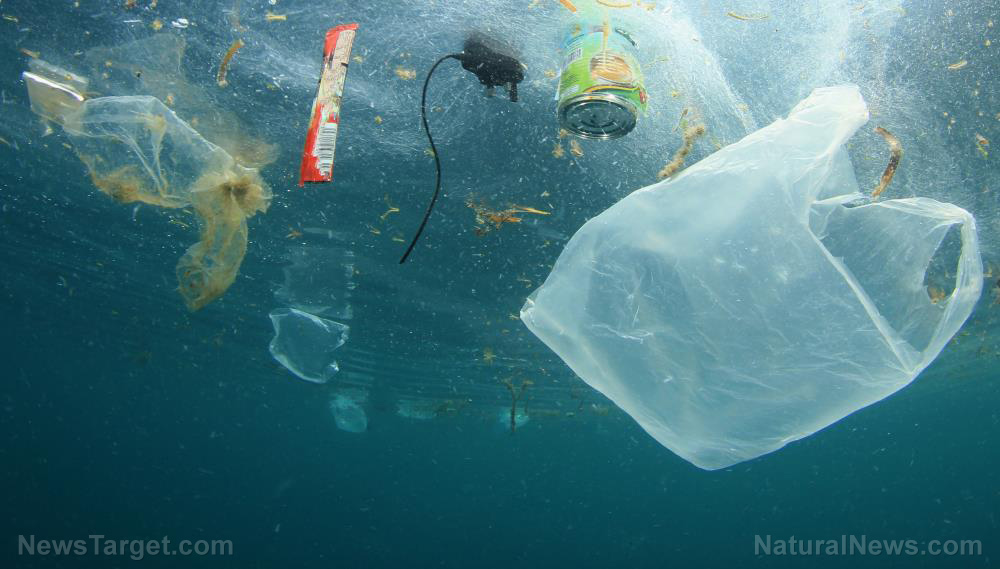
California legislators recently introduced a bill that seeks to ban the use of all kinds of plastic shopping bags by 2026.
While California already has restrictions on thin single-use plastic bags at stores, Senate Bill 1053 seeks to eliminate the use of thicker plastic bags that are usually marketed as reusable and recyclable.
Buyers can purchase these thicker bags for an additional cost. However, according to State Sen. Catherine Blakespear, who introduced the bill along with Sen. Ben Allen, shoppers don't reuse or recycle the thicker plastic bags.
In a press release, Blakenspear said the plastic bag ban implemented in 2014 failed to accomplish the intended reduction in overall plastic consumption.
She added that the ban actually resulted in a significant increase in plastic waste. It even contributed to what she described as the planet "literally choking" on plastic. Blakenspear also mentioned a study from the state-led recycling program CalRecycle.
According to the study, the amount of plastic shopping bags discarded per person has skyrocketed from eight pounds annually in 2004 to 11 pounds in 2021. (Related: STUDY: New Jersey’s plastic consumption nearly TRIPLED following plastic bag ban.)
The environmental advocacy group Environment America Research and Policy Center reported that California is one of 12 states that have some form of statewide plastic bag ban. The group also said hundreds of U.S. cities across 28 states have enforced local ordinances to help reduce plastic bag usage.
The statewide ban on single-use plastic bags was passed by the Legislature back in 2014 and it was later affirmed by voters in a 2016 referendum.
According to a recent report from the California Public Interest Research Group (CALPIRG), the 2014 plastic ban had a "loophole" that allowed businesses to offer thicker "reusable" plastic bags at checkout for a small fee. But many shoppers also continued to throw away these thicker plastic bags after one use.
Eco-friendly alternatives to plastic shopping bags
There are many eco-friendly alternatives to try instead of plastic shopping bags.
Here are some options to check out before your next trip to the grocery store:
Cotton tote bags
Cotton shopping bags are ideal if you need a bag that is thick and strong. One cotton shopping bag is also stronger than a single paper or plastic bag.
While they're sturdier than plastic bags, keep in mind that low-quality bags can cause rashes and allergies to your skin. If you have skin problems or allergies, get a high-quality cotton bag.
French mesh shopping bags
French mesh shopping bags are another great alternative to plastic bags. Like cotton tote bags, mesh bags are durable, functional and reusable.
Use mesh bags for large items and products that won't fall through the holes in them like large fruits and vegetables and other bulkier items.
Alternatively, mesh bags can be used for other items like flowers, water bottles, or wine. You can also use one if you're going for a walk and need a bag for your books and a jacket.
Recycled foldable shopping bags
Recycled foldable shopping bags are also an environmentally friendly option. One of the best features of foldable shopping bags is that you can reuse them for years.
Just make sure you don't forget them when you're buying groceries. Keep a couple of foldable shopping bags in your daily bag or the trunk of your car so you can quickly grab them before running to the store for groceries.
If foldable shopping bags get damaged, you can easily repair them by sewing up holes and tears.
However, over time these bags get dirty and bacteria develop in them. To keep your items clean, wash the bags from time to time.
And if you are going to carry meat and vegetables in a bag, always wash the bag after shopping.
These bags are great plastic bag alternatives because you can reuse them several times and you save money since you don't have to buy new plastic bags every time you buy groceries.
Reusable bags are also strong enough to carry multiple products at the same and cause less damage to the environment during production.
Visit Environ.news for more stories about plastic waste, recycling and the environment.
Watch the video below for tips on how to recycle different expired items around your home.
This video is from the Daily Videos channel on Brighteon.com.
More related stories:
Report reveals recycling plastic releases toxic “chemical cocktail” into the environment.
Paper straws and other “green” solutions are MORE TOXIC than plastic, study finds.
Bottled water found to contain alarming levels of plastic particles, microplastics.
Sources include:
Please contact us for more information.




















